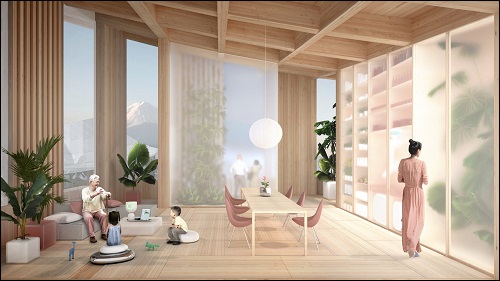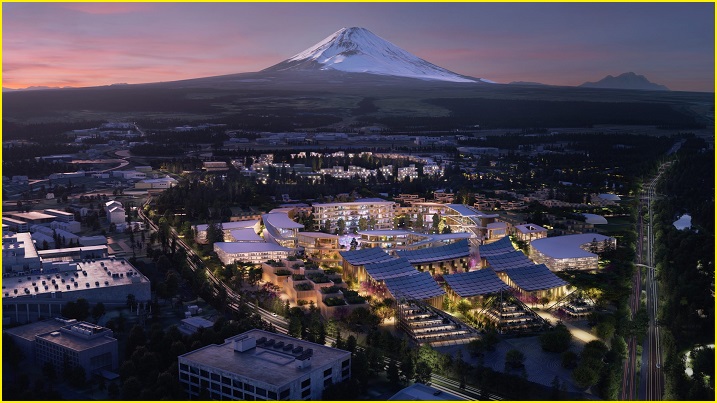Toyota plans to build a unique corporate smart city to test and develop emerging technologies in what it calls a “living laboratory”.
Woven City will be located on a 175-acre block near Mount Fuji in Japan.
Initially home to 2,000 people, Woven City will house employees of the car company – along with their families – retired couples, scientists, and Toyota’s industry partners.
The city will be built from scratch which Toyota president, Akio Toyoda, said will allow designers and technologists to fully integrate technology into the lives of its residents.
“With people, buildings and vehicles all connected and communicating with each other through data and sensors, we will be able to test connected AI technology in both the virtual and physical realms, maximising its potential,” Toyoda said.
Technical details are limited, but the car company has said homes will be filled with robotics “to assist with daily living,” and that AI-enabled IoT throughout the city will be used “to check occupants’ health, take care of basic needs and enhance daily life”.
Buildings in Woven City will be mostly wooden with solar-panelled rooftops that, combined with hydrogen fuel cells, will power the city with green energy.

Concept image showing the interior of a smart home. Source: Toyota
Only “fully-autonomous, zero-emission vehicles” will be allowed in the city, according to Toyota, with Woven City being designed to keep cars and pedestrians separated.
Although recent deaths involving Tesla cars add doubts to the immediate efficacy of autonomous vehicles, the kind of controlled environment offered by Woven City could help the technology’s development.
Toyota has commissioned Danish architect Bjake Ingels and his architectural firm, BIG, to design the project.
“A swarm of different technologies are beginning to radically change how we inhabit and navigate our cities,” Ingels said.
“Connected, autonomous, emission-free and shared mobility solutions are bound to unleash a world of opportunities for new forms of urban life.
“With the breadth of technologies and industries that we have been able to access and collaborate with from the Toyota ecosystem of companies, we believe we have a unique opportunity to explore new forms of urbanity with the Woven City that could pave new paths for other cities to explore.”
Ingels is no stranger to innovation and big tech.
BIG has designed audacious projects including the CopenHill – a powerplant with a ski slope on the roof.
The firm is currently building Google’s new headquarters in London and Mountainview, California, as well as Two World Trade Centre in New York.
Woven City isn’t expected to break ground until 2021.
In the meantime, Toyota is seeking expressions of interest from industry leaders and researchers to join the Woven City project.










